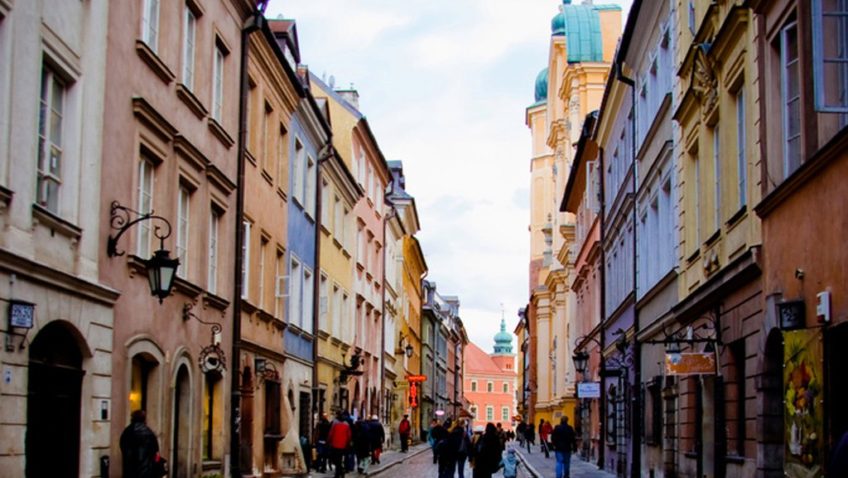Compiled by Hristo Voynov and Eva Jovanova
1. Polish senators rejected the President’s proposed referendum that was planned for Poland’s centennial anniversary. It is a blow for the President whose party has a solid majority in government but was still unable to get enough votes to push the referendum forward. While the referendum was controversial in Europe because it gave the president significantly more powers and was indicative of a rising nationalism that Poland is known for, many of its critics within Poland were focused on the date of the referendum. Many of the domestic critics were, however, more focused on the date, which they said should be reserved for a celebration and not politics.
2. Kosovo President Hashim Thaci proposed a so-called correction of the border between Serbia and Kosovo in a statement he made for VOA Albania this Thursday. This comes about ten after Trump’s dubious report was published in which the US President had agreed with Putin on Kosovo’s territorial partition. Redrawing state borders to the ethnic lines might sound like a sound plan for Putin and Trump, but in the case of Kosovo and Serbia, it sounds like a highly dangerous plot. Thaci’s statement was highly criticized by the opposition in Kosovo.
3. After the second Putin and Trump meeting was canceled, the two started planning their next summit. Both have claimed that they are interested in another meeting after the first one was canceled. The venue for this meeting would be less mutual, as Putin has invited Trump to join him in Moscow, which is sure to raise questions about their ties in American domestic politics. It is unsure what this meeting will be about, which adds to the intrigue around the summit.
4. Macedonia Parliament approved the question and the date for the referendum on the name deal this Monday. The referendum will take place on September 30, and the question will be: “Are you in favor of NATO and EU membership, and accepting the name agreement between the Republic of Macedonia and Greece?”. In order for Macedonia to become a member of NATO and the EU, it has to implement the name deal it agreed on with Greece, in which Macedonia is obliged to change its name into Republic of North Macedonia, and Greece is obliged to cease to obstruct its integration into international organizations.
5. Russia has finally stated that Polish investigators can visit Smolensk to see the site and wreckage of the 2010 airplane crash that killed then Polish president and much of the rest of the administration. It is unclear what caused this reversal. Both countries place blame for the incident on the other, which has become a source of tension between the two.
6. Serbia prepares to begin a probe on the NATO bombing consequences either by the end of this month or in September this year. The allegations that NATO used depleted uranium in its bombs, which is the alleged reason for an increase in cancer among Serbian population, hasn’t been proven valid yet, even though this pervasive mythos is circling around the Balkans as if it were a solid truth. Many experts doubt the causal relationship between depleted uranium and an increase in cancer, and others claim that the depleted uranium bombs were only used on the territory of Kosovo. NATO’s air campaign started in late March 1999 and lasted for almost 80 days. It cost more than 500 civilians their lives.
7. The date of the upcoming Moldovan parliamentary election has been set for February 24th. The government of Moldova has been split between two opposing camps, one pro-EU and one pro-Russia, and the last few months have seen even the political divide even further with the controversial mayoral election that was annulled after complaints of illegal campaigning from both candidates. Because of the growing political divide, it can be expected that the following half year until the elections will be one of fierce campaigning for the two sides.
8. German citizens with Balkan origins accounted for over 2.6 million out of the 19.3 million people with migrant background who lived in Germany in 2017, according to this week’s census published by the German Federal Statistical Office. This means that the percentage point of German citizens originating from the Balkans has increased by 4.4 percent compared to the previous year. This has been a consequence of an increase in migration in the Balkans, especially from EU countries, as they make up for the new 1.5 million German citizens with Balkan roots. Almost 860.000 of the 2.6 million people originated from Romania, almost 400.000 from Croatia, and 273.000 from Bulgaria.
9. Hungarian PM Viktor Orban attacked the EU in a keynote speech that he gave at the 29th Balvanyos Summer University in Baile Tusnad, in Romania. He attacked the EU because “there Is Liberalism but Not Democracy”, claiming that the EU refuses to defend its Christian heritage. Speaking in Székely Land, which is in Romania but comprised of mostly Hungarians, he also spoke on the ‘Hungarian unification’ which he claimed was moving into a phase of nation-building. This appeared to be in reference to FIDESZ’ political success in which it has won three consecutive elections and is now the main political force steering the country’s direction with enough of a majority to do so unilaterally.
10. Montenegrins have a strong reason to believe that this summer season, the small Balkan country with a 300-kilometer long coastline will reach its record number in tourists. They expect around 100 million euros more than in 2017, which should add up to approximately a billion euros in 2018. Interestingly for this year, most tourists are either from the region or from Western Europe and Scandinavia, compared to a few years ago, when Russians were the largest group of tourists in Montenegro.


0 comments